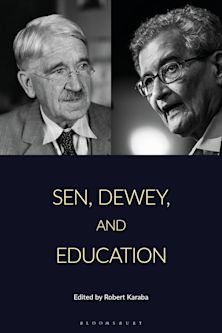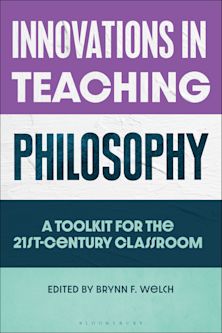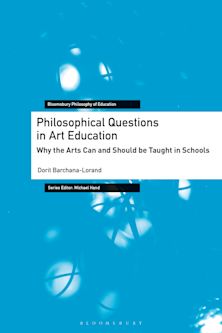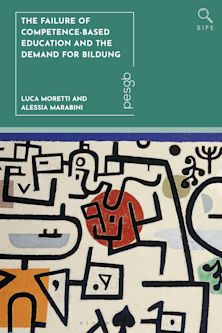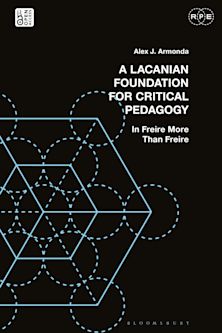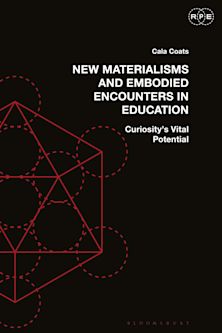- Home
- ACADEMIC
- Education
- Philosophy of Education
- Heidegger, Education, and Modernity
Heidegger, Education, and Modernity
Michael A. Peters (Author) , Valerie Allen (Contributor) , Ares D. Axiotis (Contributor) , Michael Bonnett (Contributor) , David E Cooper (Contributor) , Patrick Fitzsimons (Contributor) , Ilan Gur-Ze'ev (Contributor) , Padraig Hogan (Contributor) , F Ruth Irwin (Contributor) , Bert Lambeir (Contributor) , Paul Smeyers (Contributor) , Paul Standish (Contributor) , Iain Thomson (Contributor)
Heidegger, Education, and Modernity
Michael A. Peters (Author) , Valerie Allen (Contributor) , Ares D. Axiotis (Contributor) , Michael Bonnett (Contributor) , David E Cooper (Contributor) , Patrick Fitzsimons (Contributor) , Ilan Gur-Ze'ev (Contributor) , Padraig Hogan (Contributor) , F Ruth Irwin (Contributor) , Bert Lambeir (Contributor) , Paul Smeyers (Contributor) , Paul Standish (Contributor) , Iain Thomson (Contributor)
You must sign in to add this item to your wishlist. Please sign in or create an account
Description
Martin Heidegger is, perhaps, the most controversial philosopher of the twentieth-century. Little has been written on him or about his work and its significance for educational thought. This unique collection by a group of international scholars reexamines Heidegger's work and its legacy for educational thought. Thematically, the collection focuses on Heidegger's critique of modernity and contributors investigate the central significance for education of Heidegger's ontology and his investigation of the question of the meaning of Being by examining his 'art of teaching' (a translation of his submission to the denazification hearing), his view of science and reason, his philosophy of technology, his poetics, and the implications of his thought for learning. These essays point to the crucial importance of Heidegger's work for understanding modern, highly-technologized forms of education and for the possibilities of redemption from its worst excesses.
Table of Contents
2 Heidegger on the Art of Teaching
3 Truth, Science, Thinking and Distress
4 Martin Heidegger, Transcendence, and the Possibility of Counter-Education
5 The Origin Of ... : Education, Philosophy and a Work of Art
6 Comfortably Numb in the Digital Era: Man's Being as Standing-Reserve or Dwelling Silently
7 Heidegger on Ontological Education, or: How We Become What We Are
8 Essential Heidegger: poetics of the unsaid
9 Enframing education
10 Heidegger and Nietzsche: Nihilism and the Question of Value in relation to Education
11 Learning as Leavetaking and Homecoming
12 Education as a Form of the Poetic: A Heideggerian Approach to Learning and the Teacher-Pupil Relationship
Product details
| Published | 31 Jul 2002 |
|---|---|
| Format | Ebook (Epub & Mobi) |
| Edition | 1st |
| Extent | 288 |
| ISBN | 9781461714170 |
| Imprint | Rowman & Littlefield |
| Publisher | Bloomsbury Publishing |
About the contributors
Reviews
-
Both erudite and passionate, Gregory Smith'sMartin Heidegger demonstrates the critical importance of Heidegger's thought for understanding our present philosophical dilemmas and for charting a genuinely human future. While fully acknowledging Heidegger's terrible political and moral errors and misdeeds, Smith at the same time rescues the profoundest level of his thinking from both its partisan detractors and its "postmodernist" vulgarizers. Smith's book merits the attention of all serious students of political philosophy.
David Lewis Schaefer, Professor of Political Science, Holy Cross College. He is the author of Active Duty.













